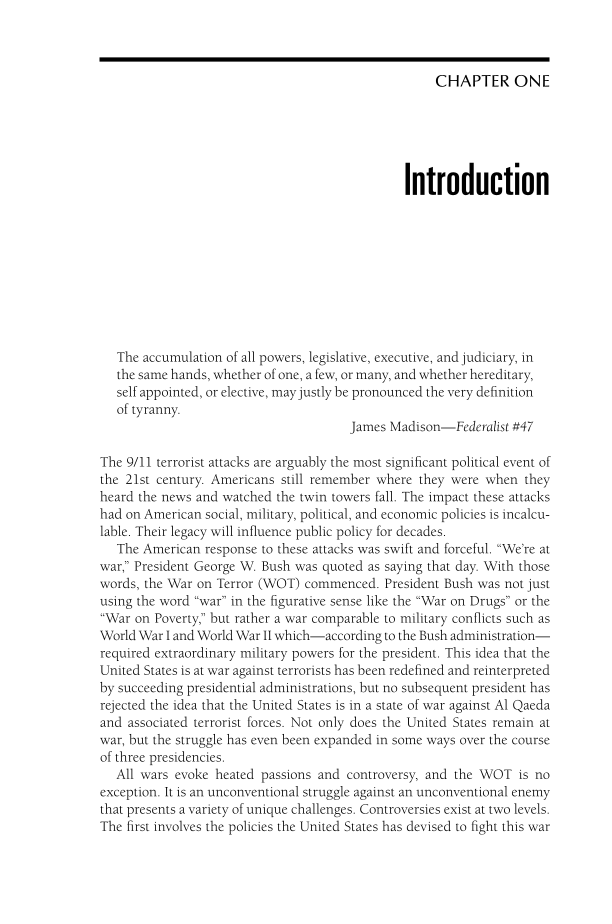The accumulation of all powers, legislative, executive, and judiciary, in the same hands, whether of one, a few, or many, and whether hereditary, self appointed, or elective, may justly be pronounced the very defi nition of tyranny. James Madison— Federalist #47 The 9/11 terrorist attacks are arguably the most signifi cant political event of the 21st century. Americans still remember where they were when they heard the news and watched the twin towers fall. The impact these attacks had on American social, military, political, and economic policies is incalcu- lable. Their legacy will infl uence public policy for decades. The American response to these attacks was swift and forceful. “We’re at war,” President George W. Bush was quoted as saying that day. With those words, the War on Terror (WOT) commenced. President Bush was not just using the word “war” in the fi gurative sense like the “War on Drugs” or the “War on Poverty,” but rather a war comparable to military confl icts such as World War I and World War II which—according to the Bush administration— required extraordinary military powers for the president. This idea that the United States is at war against terrorists has been redefi ned and reinterpreted by succeeding presidential administrations, but no subsequent president has rejected the idea that the United States is in a state of war against Al Qaeda and associated terrorist forces. Not only does the United States remain at war, but the struggle has even been expanded in some ways over the course of three presidencies. All wars evoke heated passions and controversy, and the WOT is no exception. It is an unconventional struggle against an unconventional enemy that presents a variety of unique challenges. Controversies exist at two levels. The fi rst involves the policies the United States has devised to fi ght this war CHAPTER ONE Introduction
Document Details My Account Print multiple pages
Print
You have printed 0 times in the last 24 hours.
Your print count will reset on at .
You may print 0 more time(s) before then.
You may print a maximum of 0 pages at a time.








































































































































































































































